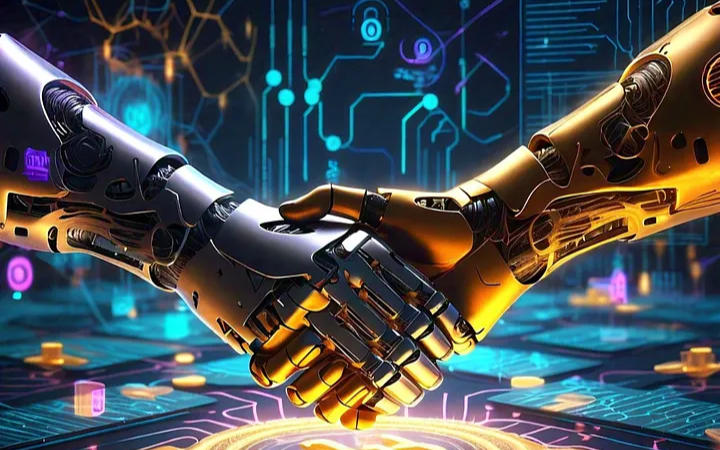Introduction to AI in Smart Contracts
It is these smart contracts that stand out in blockchain technology as a transforming innovation-the self-executing contract, where the terms of agreement are written into code. This security and transparency level by a computer program cannot be matched. However, they are time-consuming and vulnerable to human errors if handled manually. Here, AI comes into the picture, amplifying the powers of smart contracts by automating tasks, boosting accuracy, and providing efficiency in the process.
A Real-Life Case: Resolving a Cross-Border Trade Dispute
Suppose you are one of the global, large, multi-national corporations shipping raw materials to manufacturers within different continents. In one incident, this multi-national corporation has a dispute with a smaller manufacturer over delayed deliveries that will jeopardize production.
Earlier, the companies had agreed on a mutual pre-scheme of making use of a smart contract for all those deliveries. That contract had predefined what is warranted as far as payment schedule is concerned and what as far as shipping timelines and quality check. However, the manual management of that contract had led to miscommunication, and there had been delays in the payment trigger due to mismatches in shipment records.
Now, the AI was the game-changer. In integrating AI with the blockchain system they already had, they could process real-time data like shipments and inventory levels automatically verify conditions such as delivery time and product quality. Not having human oversight, the AI was able to identify accurately the cause of the delay adjusting the execution of the contract accordingly and without threatening a lawsuit, maintained very old business relationship.
In the Improvement of AI in Smart Contracts
How AI Automates Complex Conditions
AI algorithms can process humongous amounts within minimal time and automate the function of smart contracts, particularly in multifaceted agreements. For instance, during supply chain management, AI can track deliveries, analyzes delays, and adjust payment arrangements without human intervention.
Higher Security
AI smart contracts are considerably hard to break since they can identify suspicious patterns. Therefore, these add a bit of reduced risk in fraud or manipulation in critical business agreements with added trust.
Decreased Errors
Another advantage in the use of AI in smart contracts is in getting rid of human errors in coding or in managing terms of contracts. AI can then promptly and correctly process and verify transactions beyond human capacities, thus helping to avoid costly mistakes.
Improvisation with Circumstances
Traditional contracts are not flexible, but AI-enhanced smart contracts might be more adaptable. AI can monitor real-time changes be it market changes, natural disasters, or unexpected business disruption. Thus, AI can change or amend the conditions if needed.
Future: Smarter, More Efficient Contracts
As AI continues to develop, it will be integrated with blockchain and smart contracts for the betterment of industries across the globe. Businesses, governments, and individuals all will realize the value of utilizing this technology in smart contracts to automate, secure, and adapt to circumstances.
The cross-border trade dispute case represents just how AI is making the process of streamlining complex agreements really efficient. It accomplishes this not only by solving old problems but through opening a portal for something more interlinked and secure in terms of global business. From supply chains to real estate, it promises to revolutionize how agreements are both made and enforced through its symbiosis with blockchain technology.

 English
English
 Deutsch
Deutsch
 Español
Español
 Français
Français
 Português
Português
 日本
日本
 한국인
한국인
 Türkçe
Türkçe
 Русский
Русский
 Tiếng Việt
Tiếng Việt
